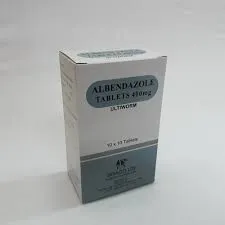- Afrikaans
- Albanian
- Amharic
- Arabic
- Armenian
- Azerbaijani
- Basque
- Belarusian
- Bengali
- Bosnian
- Bulgarian
- Catalan
- Cebuano
- Corsican
- Croatian
- Czech
- Danish
- Dutch
- English
- Esperanto
- Estonian
- Finnish
- French
- Frisian
- Galician
- Georgian
- German
- Greek
- Gujarati
- Haitian Creole
- hausa
- hawaiian
- Hebrew
- Hindi
- Miao
- Hungarian
- Icelandic
- igbo
- Indonesian
- irish
- Italian
- Japanese
- Javanese
- Kannada
- kazakh
- Khmer
- Rwandese
- Korean
- Kurdish
- Kyrgyz
- Lao
- Latin
- Latvian
- Lithuanian
- Luxembourgish
- Macedonian
- Malgashi
- Malay
- Malayalam
- Maltese
- Maori
- Marathi
- Mongolian
- Myanmar
- Nepali
- Norwegian
- Norwegian
- Occitan
- Pashto
- Persian
- Polish
- Portuguese
- Punjabi
- Romanian
- Russian
- Samoan
- Scottish Gaelic
- Serbian
- Sesotho
- Shona
- Sindhi
- Sinhala
- Slovak
- Slovenian
- Somali
- Spanish
- Sundanese
- Swahili
- Swedish
- Tagalog
- Tajik
- Tamil
- Tatar
- Telugu
- Thai
- Turkish
- Turkmen
- Ukrainian
- Urdu
- Uighur
- Uzbek
- Vietnamese
- Welsh
- Bantu
- Yiddish
- Yoruba
- Zulu
Dec . 05, 2024 12:15 Back to list
Dexamethasone Sodium Phosphate Injection Administration Guidelines and Considerations for Safe Use
Dexamethasone Sodium Phosphate Injection Uses and Considerations
Dexamethasone sodium phosphate injection is a potent corticosteroid that is widely used in various medical settings due to its anti-inflammatory, immunosuppressant, and anti-allergic properties. This medication is commonly employed in the management of a variety of conditions, including autoimmune diseases, allergic reactions, and certain types of cancer. Understanding its uses, side effects, and specific considerations is paramount for healthcare providers and patients alike.
Mechanism of Action
Dexamethasone, as a synthetic corticosteroid, mimics the effects of hormones produced by the adrenal glands. It works primarily by inhibiting the production of inflammatory substances and modulating immune responses. As a result, dexamethasone effectively reduces inflammation and alleviates symptoms associated with various conditions.
Indications
Dexamethasone sodium phosphate injection is indicated for numerous conditions, including but not limited to
1. Endocrine Disorders It is often administered in cases of adrenal insufficiency, such as Addison’s disease or acute adrenal crisis. 2. Rheumatic Disorders The injection is used for the management of inflammatory and autoimmune rheumatic diseases like rheumatoid arthritis and lupus.
3. Allergic Reactions Severe allergic reactions, including anaphylaxis, may be treated with dexamethasone to reduce swelling and suppress the immune response.
4. Respiratory Conditions It has a significant role in managing acute exacerbations of asthma and chronic obstructive pulmonary disease (COPD), where inflammation plays a critical role.
5. Cancer Treatment Dexamethasone is utilized in oncology to manage the side effects of chemotherapy, including nausea and vomiting, and to reduce inflammation associated with tumors.
6. Neurological Conditions It is also indicated in cases of cerebral edema, particularly in brain tumors or after neurosurgical procedures.
Administration
Dexamethasone sodium phosphate is typically administered via intramuscular or intravenous injection, allowing for rapid systemic effects. The dosage may vary based on the condition being treated, the severity of symptoms, and patient-specific factors. Clinicians must carefully determine the appropriate dosage to mitigate risks while ensuring therapeutic effectiveness.
dexamethasone sodium phosphate injection use

Side Effects
While dexamethasone is effective, it is not without side effects. Patients may experience a range of adverse effects, including
1. Gastrointestinal Issues Nausea, vomiting, and abdominal discomfort can occur.
2. Metabolic Changes Prolonged use may lead to hyperglycemia, which is particularly concerning for patients with diabetes.
3. Mood Changes Some individuals may experience psychological effects such as mood swings, anxiety, or even psychosis.
4. Infection Risk As an immunosuppressant, dexamethasone can increase the risk of infections, necessitating close monitoring.
5. Osteoporosis Long-term use can lead to decreased bone density, increasing the risk of fractures.
Considerations
Before administering dexamethasone sodium phosphate, healthcare providers should assess the patient's medical history, especially regarding existing infections, gastrointestinal disorders, or pre-existing conditions that may predispose them to complications. It is crucial to monitor patients for therapeutic response and potential side effects throughout the course of treatment.
Patients must be educated about the importance of adherence to the prescribed regimen and advised on potential side effects to watch for. Gradual tapering of the drug may be necessary when discontinuing treatment, especially after prolonged use, to allow the body’s natural steroid production to recover.
Conclusion
Dexamethasone sodium phosphate injection is a versatile corticosteroid that plays an essential role in modern medicine. Its wide-ranging applications in treating inflammatory, autoimmune, and allergic conditions underscore its importance. However, the balance between therapeutic benefits and potential risks demands vigilant monitoring and informed patient participation in their treatment. By understanding its uses, side effects, and proper administration, both healthcare providers and patients can work together to optimize outcomes in the management of various health issues.
-
Guide to Oxytetracycline Injection
NewsMar.27,2025
-
Guide to Colistin Sulphate
NewsMar.27,2025
-
Gentamicin Sulfate: Uses, Price, And Key Information
NewsMar.27,2025
-
Enrofloxacin Injection: Uses, Price, And Supplier Information
NewsMar.27,2025
-
Dexamethasone Sodium Phosphate Injection: Uses, Price, And Key Information
NewsMar.27,2025
-
Albendazole Tablet: Uses, Dosage, Cost, And Key Information
NewsMar.27,2025













